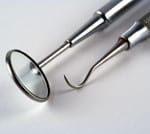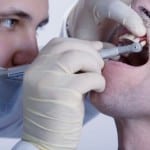 If you notice bleeding when you brush your teeth, we strongly recommend calling and making an appointment. Bleeding gums are sometimes a sign of gum disease and the sooner we can sort this problem out, the better. Sadly, with gum disease, the longer you leave it, the worse it becomes and severe gum disease is the leading cause of tooth loss among UK adults. If you’ve spotted blood when you brush, now is the time to see your dentist.
If you notice bleeding when you brush your teeth, we strongly recommend calling and making an appointment. Bleeding gums are sometimes a sign of gum disease and the sooner we can sort this problem out, the better. Sadly, with gum disease, the longer you leave it, the worse it becomes and severe gum disease is the leading cause of tooth loss among UK adults. If you’ve spotted blood when you brush, now is the time to see your dentist.
About gum disease
Gum disease is one of the most common preventable illnesses among UK adults. It is caused by harmful bacteria in the mouth, which give off acids that irritate the gums and result in them becoming inflamed and painful. These acids are also responsible for enamel wear, which increases the risk of cavities. Plaque, the main risk factor for gum disease and decay, forms when bacteria join forces with food debris and saliva. It is a sticky, colourless substance that clings to the teeth and gums. Good oral hygiene should be sufficient to keep plaque at bay, but we also highly recommend paying attention to your diet and steering clear of foods that contain a lot of sugar and acidic foods and drinks.
When should I see a dentist?
Sometimes gums bleed because of an injury or over-brushing, but often bleeding gums are symptomatic of gum disease. If you see blood when you brush your teeth, your gums are swollen or sore or they look very red, we recommend calling and making an appointment. It is always better to treat dental issues early, as there is a risk of them becoming more complex and severe. Mild gum disease (gingivitis) is relatively easy to treat, however advanced gum disease (periodontal disease) is much more serious and often results in tooth loss. We advise six monthly check-ups for all patients, but if you do develop symptoms between appointments, don’t wait for your next scheduled check – call as soon as you can.
If you would like any information about gum disease or would like to make an appointment, simply call us or pop in during office hours.















